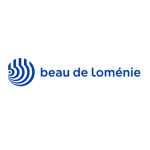Order No. 2021-1658 of December 15 2021 concerns the attribution of IP rights relating to assets generated by software developers and inventors who are neither company employees nor civil servants and who have been working in a company or public institute carrying out research. This order has introduced new provisions into the French Intellectual Property Code (CPI), namely Articles L 113-9-1 and L 611-7-1.
These new provisions seek to extend the existing rules concerning patentable inventions (Article L 611-7 CPI) and software (Article L 113-9 CPI) created by public or state sector employees to other categories of authors and inventors.
These categories include interns, PhD students, scholarship students from overseas and emeritus professors or directors, who have been working in a company or public institute carrying out research acting as a host institution.
The new provisions provide that the host institution will own inventions or software created by an inventor or author in the context of their regular activities/mission or on the basis of explicit instructions given by the host institution. They also provide for the possible assignment to the host institution of certain inventions not resulting from the regular activities of the inventor or from instructions that are explicitly entrusted to the inventor.
These provisions will apply whatever the type of host institution having an R&D activity (public or private), provided that the inventor or developer is bound to the host institution by an agreement and, as regards software, that the author was working under the orders of a manager and received compensation for the work carried out.
The new provisions seek to simplify the situation for institutions carrying out research and to harmonise the situation with respect to staff members being company employees or civil servants.
An implementing decree is expected to define in more detail the nature of the financial compensation which will be due to the inventors or developers.
Articles L 113-9-1 and L 611-7-1 entered into force on December 17 2021 and apply to inventions or software created from this date.
Gaston Vedel
IP lawyer, Cabinet Beau de Loménie












